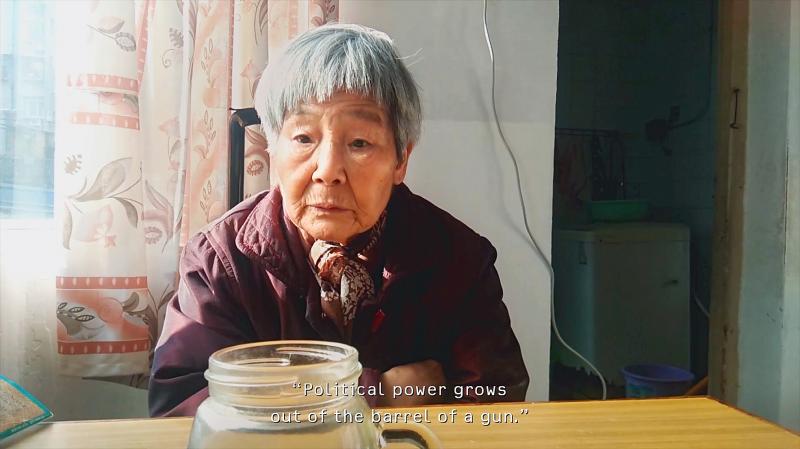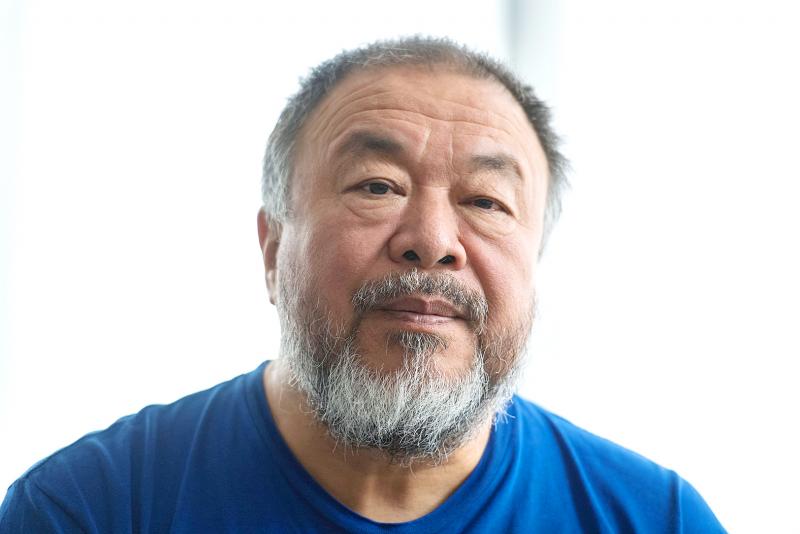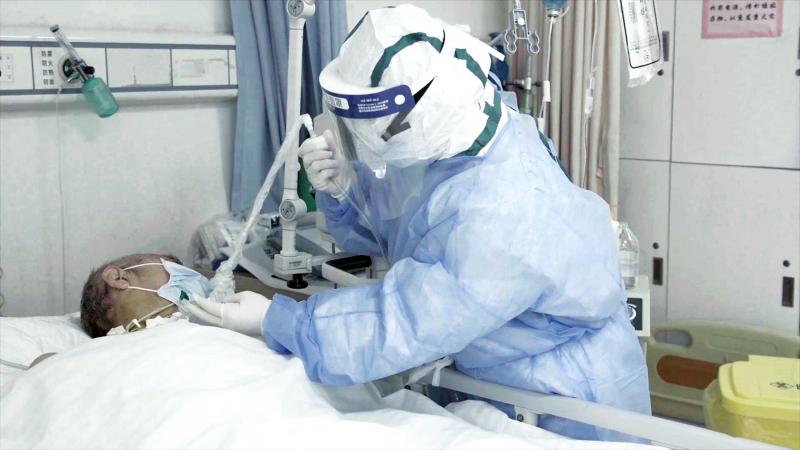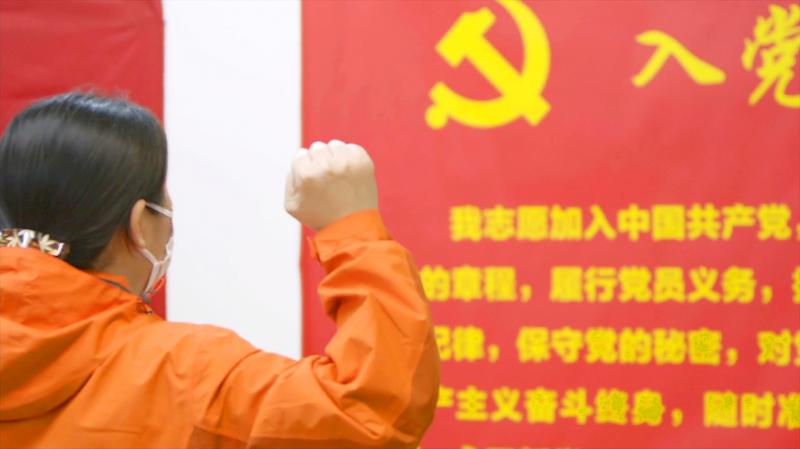When crisis strikes, we focus solely on extricating ourselves from the situation; reflection is a luxury that happens after. Just this month the Chinese city of Wuhan returned to the headlines as the city hosted a massive water park party while the rest of the world struggles to fight back against COVID-19. Wuhan and the rest of China can celebrate and claim victory, but at the start of this year Wuhan was a different place.
The Chinese contemporary artist and activist Ai Weiwei’s (艾未未) latest film, Coronation, brings us back to Wuhan at the height of the pandemic in China, where it all started. It aims to answer one simple question: “What really happened in Wuhan?”
Much of the outside world can only answer this question with the information that is given; that is, from the Chinese government and news sites critical, or supportive, of the Chinese regime. Ai’s film, however, manages to reveal the true situation in Wuhan not with blatant criticism of the Chinese regime; rather, he lets the film speak for itself and its message resonates strongly.

Photo: Screen grab
Ai directed and produced the film remotely from Europe (where he lives in exile), while filming was conducted by citizens living in Wuhan. The stories, emotions and words shared in the film are real and are human at its core.
The film showed painful scenes of patients under intensive care attached to ventilators struggling to breath while in a near comatose state. The picture painted by much of the Western media is that of hospitals under chaos and panicking healthcare workers. What Ai presents is far from calamity — nurses and doctors were shown attending to patients with care and professionalism. But even with this sense of calm, the viewer cannot help but feel a sense of underlying uncertainty as these frontline workers continue to fight against an invisible enemy they did not yet fully understand.
While the film does not offer running commentary, it presents various narratives of Wuhan residents that are woven cleverly together. One individual that was filmed, Meng Liang, is a construction worker who came to Wuhan to build new hospitals and is now trying to find a way out of the locked-down city. He tells us of his struggle with the authorities sending him from one department to the other with no one offering him a solution.

Photo: AFP
Meng said that after being approached by other film volunteers the Public Complaints Administration warned him: “We tried to help you. Don’t mess it up with ‘filming.’”
Meng later tried to call the authorities.
“They just ignored me,” lamented Meng, “They say they’re not in charge. So I don’t even know whom I should ask.”

Photo: Screen grab
If the viewer is hoping for political commentary, expect most of it to come after the first hour of the film. A film volunteer’s mother is given center stage as she shares her elderly wisdom on China’s national situation and the virtues of the Chinese Communist Party (CCP). The patriotic position to take is that China will properly take care of its citizens.
“They [The CCP] make sure that you eat well,” she says, “Now you know how good the Communist Party is.”
While the initial outbreak possibly signaled a threat to CCP legitimacy, the volunteer’s mother aptly recalls Mao Zedong’s (毛澤東) dictum, reminding us of where the CCP’s legitimacy comes from: “Political power grows out of the barrel of a gun… the Party commands the gun, and the gun must never be allowed to command the Party.”

Photo: Screen grab
Ideological discipline and indoctrination continued to flourish during Wuhan’s battle against COVID-19. One scene captured the oath taking ceremony of healthcare workers into the CCP. The inclusion of this scene was indeed important as viewers should not forget that the CCP continues to reign supreme over the minds and hearts of many Chinese citizens, regardless of the failures in handling the outbreak.
Blame and criticism is directed to provincial leaders and low ranking officials, while the Party is seen as infallible and indestructible.
Most painful to watch was perhaps the last scenes of weeping family members collecting the ashes of the deceased. Yet, in such solemn and personal of moments, the CCP continues to intrude on the lives of the grieving with its bureaucratic procedures. The State and the Party remain a part of every Chinese citizen’s life, even unto death. Beyond its subtle political messages, Coronation is far from an expose. It is a journey into Wuhan during its most difficult days. It shows a Wuhan, and a China, with a human face.
Coronation can be watched on Vimeo.

April 28 to May 4 During the Japanese colonial era, a city’s “first” high school typically served Japanese students, while Taiwanese attended the “second” high school. Only in Taichung was this reversed. That’s because when Taichung First High School opened its doors on May 1, 1915 to serve Taiwanese students who were previously barred from secondary education, it was the only high school in town. Former principal Hideo Azukisawa threatened to quit when the government in 1922 attempted to transfer the “first” designation to a new local high school for Japanese students, leading to this unusual situation. Prior to the Taichung First

Chinese Nationalist Party (KMT) Chairman Eric Chu (朱立倫) hatched a bold plan to charge forward and seize the initiative when he held a protest in front of the Taipei City Prosecutors’ Office. Though risky, because illegal, its success would help tackle at least six problems facing both himself and the KMT. What he did not see coming was Taipei Mayor Chiang Wan-an (將萬安) tripping him up out of the gate. In spite of Chu being the most consequential and successful KMT chairman since the early 2010s — arguably saving the party from financial ruin and restoring its electoral viability —

The Ministry of Education last month proposed a nationwide ban on mobile devices in schools, aiming to curb concerns over student phone addiction. Under the revised regulation, which will take effect in August, teachers and schools will be required to collect mobile devices — including phones, laptops and wearables devices — for safekeeping during school hours, unless they are being used for educational purposes. For Chang Fong-ching (張鳳琴), the ban will have a positive impact. “It’s a good move,” says the professor in the department of

Article 2 of the Additional Articles of the Constitution of the Republic of China (中華民國憲法增修條文) stipulates that upon a vote of no confidence in the premier, the president can dissolve the legislature within 10 days. If the legislature is dissolved, a new legislative election must be held within 60 days, and the legislators’ terms will then be reckoned from that election. Two weeks ago Taipei Mayor Chiang Wan-an (蔣萬安) of the Chinese Nationalist Party (KMT) proposed that the legislature hold a vote of no confidence in the premier and dare the president to dissolve the legislature. The legislature is currently controlled